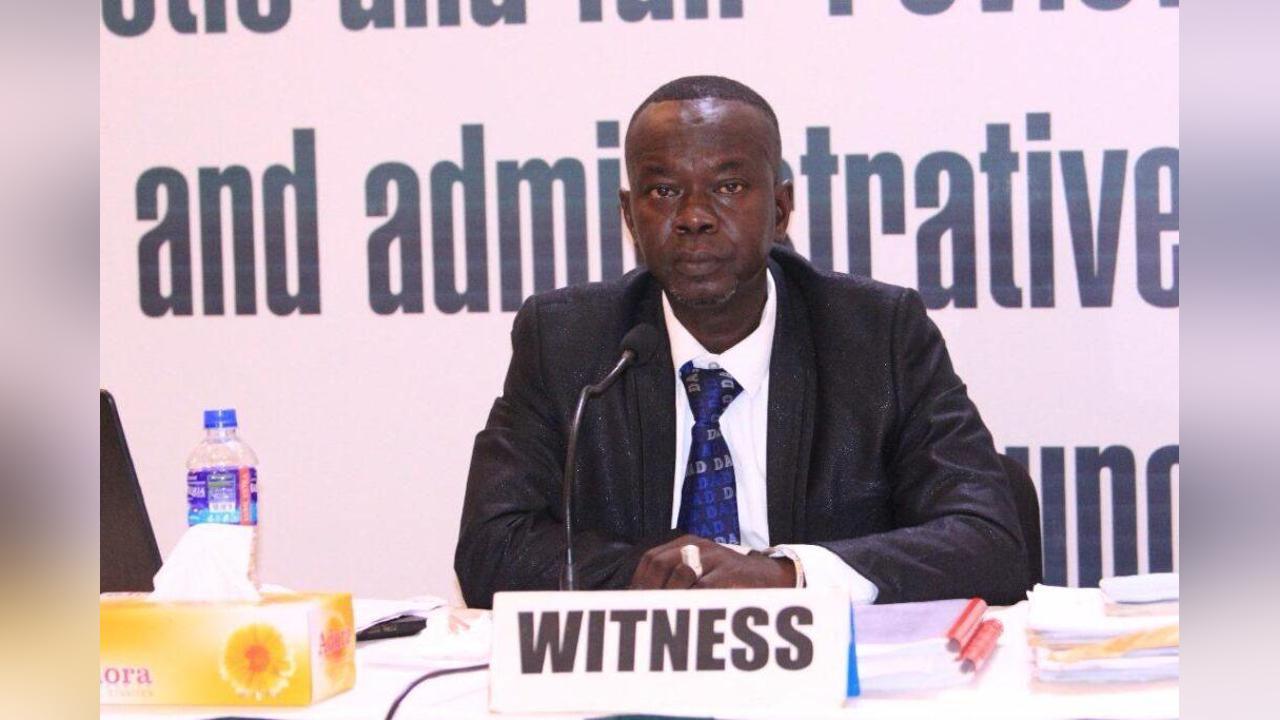Africa-Press – Gambia. Momodou Camara, former Finance Director of the Banjul City Council (BCC), testified before the Local Government Commission of Inquiry on Tuesday, July 15, expressing dismay at Mayor Rohey Malick Lowe’s claim that she was unaware of many council transactions.
Camara, who served under both Mayor Lowe and Chief Executive Officer Mustapha Batchily, told the commission that it was the mayor—not the CEO—who exercised real authority at the council.
“Three years working under Batchily and Rohey Malick Lowe. She calls the shots. Batchily is powerless,” he told the commission.
He stated that Batchily has no influence in the council, urging the commission to review all payment vouchers involving large sums, which would reveal that Mayor Lowe approves every transaction.
Camara, who serves as the Director of Finance, said his input is not sought when it comes to the mayor’s donations and financial support initiatives.
“This is always approved, approved, and Batchily sends it to me. What do I know? I just have to pay it because the money is in the account, and that’s all the mayor is interested in as far as my job is concerned in BCC is the bank balances,” Camara explained.
He added, “If the bank balances are good to go, she fires the shots so Batchily has no say in our finances.”
He further noted that, despite his technical expertise, he was never given the opportunity to contribute his knowledge because his input was never requested. Stating, “I would not be consulted on what to spend or how to do.”
“But you sign. Signing a cheque will suppose you were consulted; that is the presumption,” said Counsel Gomez.Camara stated that while he does sign documents, the papers he receives as Director of Finance are primarily instructions to process payments. He explained that the standard procedure should involve verifying with him whether funds are available before proceeding.
Counsel Gomez questioned the witness on whether he, as Director of Finance, has the discretion to withhold payments even if directed by the CEO.
Camara responded that he does have such discretion, but when asked why he does not often exercise this authority, he admitted it is rarely used.
Counsel Gomez then challenged him, saying, “You have paid Fatou Mbenbga hundreds of thousands of Dalasi knowing full well the transactions were not in line. You paid so many monies for donations, knowing full well they do not pass through the proper procedure,” Counsel Gomez said.
He also informed Camara that he had authorized—and even submitted a formal procurement request—for LED lights, fully aware that this was beyond his authority.
Camara explained that upon assuming the role of finance director, he encountered a system at BCC that severely limited his effectiveness and prevented him from performing his duties.
He revealed that the directors had formed a coalition within the council, deliberately excluding him and refusing to support his work. “every day was like war.”
Camara agreed with the counsel’s observation that the council operated under a deliberately disorganized system.
Counsel Gomez stated that the council was structured in a way that allowed individuals to behave as if the institution belonged to them, using it for personal gain.
Gomez also suggested that Camara and Batchily appeared to have tolerated this flawed system, possibly because they lacked the power to change it.
Camara concurred and described the commission’s work as a valuable blessing for the country.
He emphasized the need to review the Local Government Act to clearly define the boundaries between the roles of the CEO and the mayor, noting that the current overlap creates confusion and leads to blame-shifting.
For More News And Analysis About Gambia Follow Africa-Press






